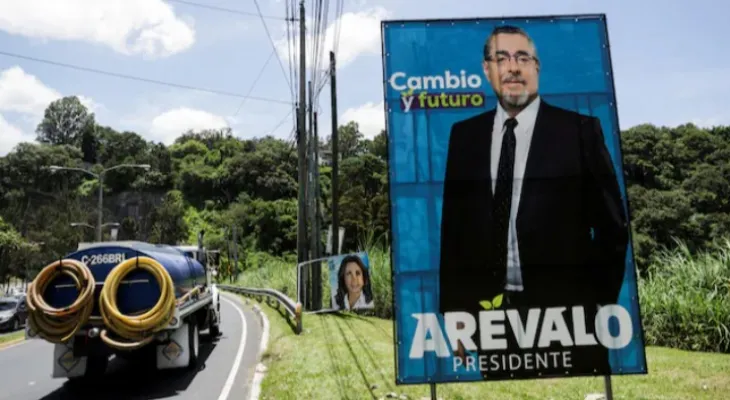Search here
Newspaper
Search here

Arab Canada News
News

Published: December 12, 2023
Through its ambassador in Guatemala, Rajani Alexander, the Canadian government joined the chorus of countries demanding respect for the results of the elections held in the second round on August 20, 2023, in which Bernardo Arévalo won.
Since then, the political class in power in Guatemala has been trying, at any cost, to prevent Arévalo from assuming the presidency of the country on next January 14.
In a call published by the Guatemalan newspaper Prensa Libre on December 10, the ambassadors of Germany, Canada, France, Great Britain, Sweden, and Switzerland, in addition to the U.S. chargé d’affaires, confirmed that election day was peaceful. This was also the case in national and international election monitoring missions that followed the process. This included missions from the European Union and the Organization of American States. The Supreme Electoral Court confirmed that thousands of international and national observers were part of the missions, including people known for their integrity.
In October, mobilization in Guatemala called for the resignation of three officials, Consuelo Porras, Rafael Curruchiche, and Fredy Orellana, who were accused of conspiring to steal Bernardo Arévalo’s victory in the presidential elections in the second round on August 20, 2023.
Since the unexpected results achieved by Arévalo in the first round of the presidential elections on June 25, and even more so since his victory in the second round on August 20, calls to annul the results of those elections by these three officials have multiplied.
On December 8, the Guatemalan Attorney General's Office announced that it considered the presidential elections won by Bernardo Arévalo in August null and void due to alleged irregularities. This statement sparked outrage from the Organization of American States, which condemned the attempted coup in Guatemala.
For his part, Attorney General Leonor Morales said during a press conference that investigations showed irregularities in drafting the final tally protocol, and therefore the elections of the president, vice president, and deputies [...] are automatically null and void.
However, the Supreme Electoral Court had earlier declared the elections legitimate and confirmed that Arévalo can assume office, as planned, on January 14. Nevertheless, Attorney General Morales clarified that the protocol was not approved by the plenary session of the Tokyo Stock Exchange and therefore should not be used to record the results.
Comments